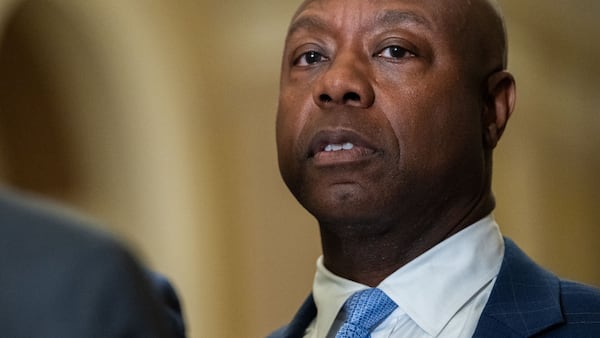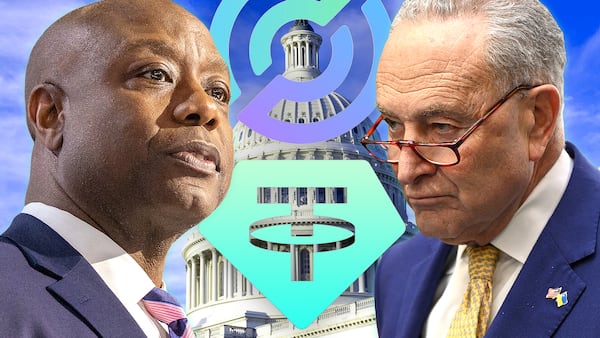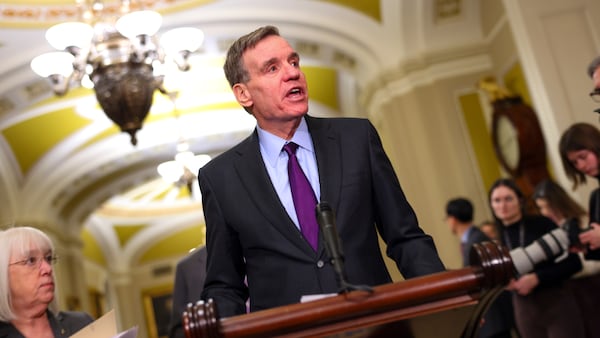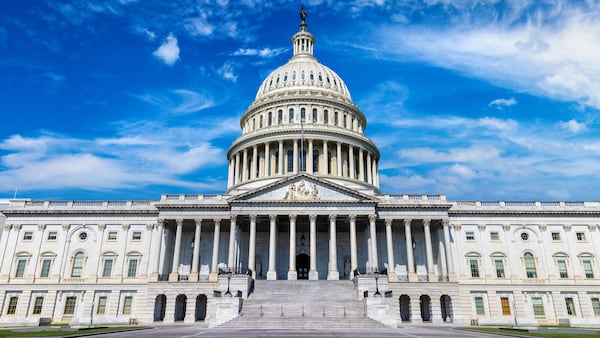- US Senators voted to advance the Genius Act on Monday.
- Democrats reportedly secured several amendments to the landmark stablecoin legislation.
- A final vote could come as soon as this week.
Landmark stablecoin legislation cleared a key hurdle in the US Senate on Monday.
In a 66-32 vote, Senators advanced the Genius Act, legislation that would regulate the issuance of dollar-pegged stablecoins, a kind of crypto asset that has been embraced by fintech titans such as PayPal and Stripe.
Now, the Genius Act will need only a simple majority when it comes up for a final vote, something that could happen as soon as this week.
Monday’s vote was a major win for crypto legislation.
“By advancing the Genius Act, lawmakers have delivered the strongest bipartisan signal yet that the United States is ready to lead — not follow — in building the next generation of financial infrastructure,” The Digital Chamber, an industry trade group, said in a statement after the vote.
“This vote brings the first federal stablecoin framework within reach.”
The Genius Act has faced a rocky road in the Senate, where Republicans have a narrow 53-47 majority and the chamber’s rules mean that legislation often requires more than 60 votes to pass.
Earlier this month, the Senate rejected the bill after several crypto-friendly Democrats pulled their support, saying it would endanger consumers, the financial system, and national security without further revision.
In negotiations since, they have won several concessions from Senate Republicans, and more than a dozen Democrats voted to advance the bill on Monday.
Changes to the bill will require stablecoin issuers to comply with bank-like anti-money laundering regulations, limit the ability of tech giants such as Meta to issue their own stablecoins, strengthen a ban on yield-bearing stablecoins, and ensure customer’s claims take priority in the event of a bankruptcy, according to a memo circulated by pro-crypto Senate Democrats and shared by Punchbowl News last week.
Negotiations
But it did not appear to ban President Donald Trump or his family from issuing stablecoins, something Democrats have repeatedly demanded in negotiations over crypto legislation. World Liberty Financial, a crypto venture backed by the Trump family, had issued its own stablecoin.
Senator Mark Warner, a Democrat from Virginia, said the Genius Act was imperfect, but “far better than the status quo” in a statement ahead of Monday’s vote.
“The stablecoin market has reached nearly $250 billion and the U.S. can’t afford to keep standing on the sidelines,” he said.
“The Genius Act is a meaningful step forward. It sets high standards for issuers, limits big tech overreach, and creates a safer, more transparent framework for digital assets.”
If passed, the Genius Act would allow banks and other companies to issue stablecoins, provided they meet certain requirements.
That includes backing the stablecoins with highly liquid assets such as US Treasuries, providing monthly disclosure of their reserves, and retaining the ability to freeze tokens at the request of law enforcement.
“The bill provides much needed regulatory clarity to issuers and consumers alike, opening the floodgates for broader access to the only technology in the crypto industry that has achieved universal product market fit,” Gabe Feinberg, general counsel at Sui Foundation, told DL News.
“Many large institutions have been sidelined from participating in the web3 industry because of the absence of definitive stablecoin regulation, so we can only assume after its enactment, a huge influx of eager capital will enter the industry, driving growth for web3 companies and the greater economy.”
But community banks and state financial regulators have expressed concern with provisions in the bill, Punchbowl has reported. And crypto critics say it will enable crime and corruption.
“Its basic flaws remain unaddressed,” Senator Elizabeth Warren, a Democrat from Massachusetts, said ahead of the vote.
National security
“A bill that meaningfully strengthens oversight of the stablecoin market is worth enacting. A bill that turbocharges the stablecoin market while facilitating the president’s corruption and undermining national security, financial stability, and consumer protection is worse than no bill at all.”
In an April 15 research note, analysts at UK bank Standard Chartered said the Genius Act’s passage would “further legitimise the stablecoin industry.”
“We estimate that this would cause total stablecoin supply to rise from USD 230bn today to USD 2tn by end-2028,” they wrote.
Trump and Republican lawmakers have pledged to advance two significant pieces of crypto legislation this year: one addressing stablecoin issuance and the other addressing crypto market structure.
After years of false starts, lawmakers are tackling stablecoins first.
In addition to the Senate’s Genius Act, Republicans in the House of Representatives are pushing their own bill addressing the dollar-pegged tokens called the Stable Act.
Aleks Gilbert is DL News’ New York-based DeFi correspondent. You can reach him at aleks@dlnews.com.









